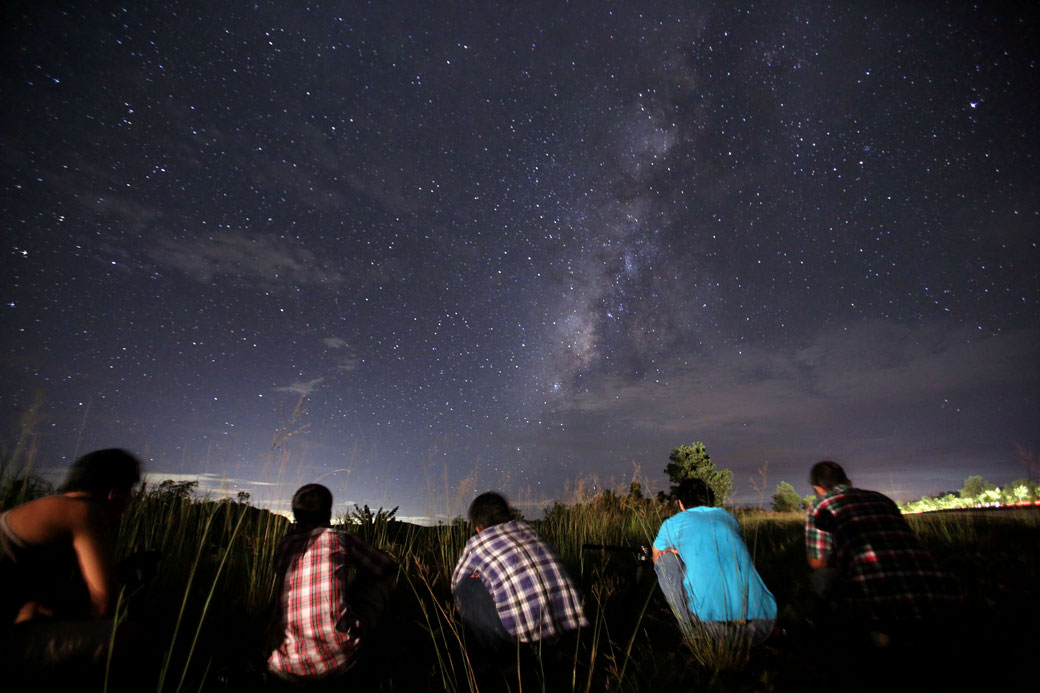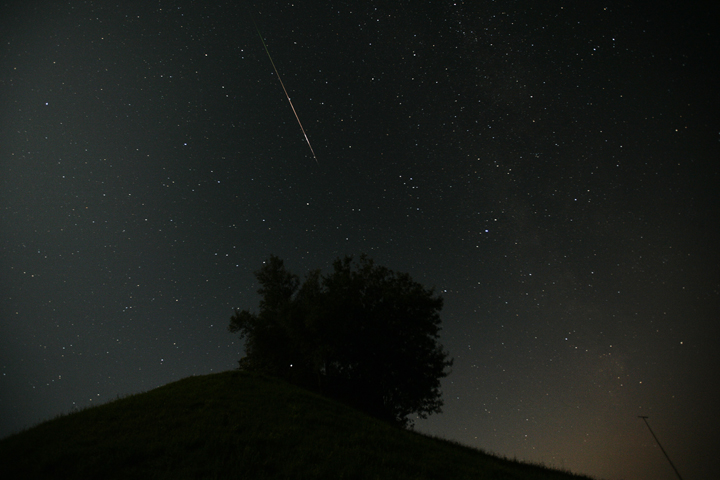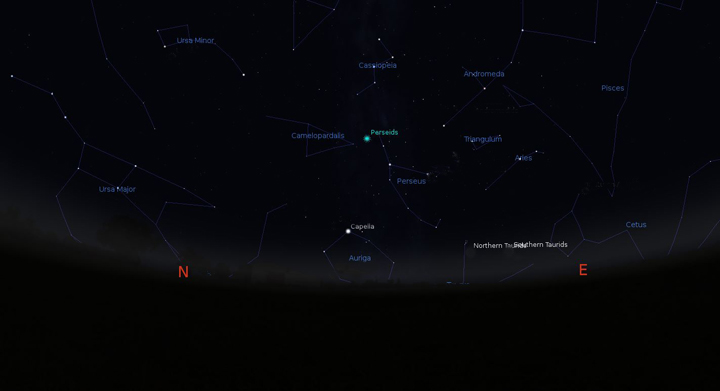TORONTO – With the peak of the best meteor shower of the year coming up, you’re going to want to head outside this weekend and next week (if you get a clear sky).

The Perseids are the year’s most popular meteor shower: it’s warm out and there can be as many as 100 meteors an hour in dark locations. Though the actual peak night doesn’t occur until Aug. 12-13, you’re still likely to see a few meteors over the weekend. And, as the moon is beginning to wane (approaching new moon) and it doesn’t rise until after 1 a.m., the sky will be nice and dark for this year’s shower.
READ MORE: 5 cheap and fun science activities to do before summer’s end
So here’s what you need to do to catch a “shooting star.”
1. Get to a dark location
The best place for catching meteors is away from the city lights. Light pollution from the city actually turns our night sky more blue than black, leaving only the brightest stars visible. For meteors, which can range from brief, faint streaks across the sky to longer, bright fireballs can be difficult to spot.
If you can, get out of the city to a dark location. But if you can’t, head to a local park (but be safe!) or stay in your own yard. Turn out all the lights and maybe ask your neighbours to do the same.
You can find out the worst places for light pollution in and around the GTA by clicking here.
2. Grab a blanket or lawn chair
Meteor showers are the easiest astronomical events to watch. You don’t need a telescope or binoculars — just your own eyes. The only thing you want is a comfortable place from which you can watch them.
Instead of sitting in a chair or standing and craning your neck — which can get pretty tiring after a while — grab a lawn chair or a blanket so that you can lie down. It’s far more comfortable. But remember not to fall asleep!
3. No phone!
Since you’re enjoying the outdoors, how about putting that phone away?
It’s not just about leaving tech behind, but that light from your phone interferes with your ability to see meteors. It can take up to 30 minutes for our eyes to readjust to darkness after seeing white light. So if you’re looking at your phone, not only will you be missing out on the opportunity to see meteors, but even when you put that phone away, you’ll likely miss out on the faint meteors that might be visible.
4. Know where to look — and be patient!
The Perseids are named after the constellation from which the meteors appear to be coming. This is called the radiant. In this case, the meteors appear to be originating from the constellation Perseus.
The constellation doesn’t rise until around midnight and doesn’t get high in the sky until around 4 a.m. That doesn’t mean you have go out between those times to catch Perseids, though. Still, the darker the sky, the higher the radiant, the better chance you have.
Though the meteors will be appearing from that location, just looking up will ensure that you’ll see some.
5. Stay warm
It might be summer, but the temperatures drop at night. And if you’re cold, you’ll be uncomfortable and unlikely to last very long. And you’ll want to stay out as long as you can, as there’s no guarantee that you’ll see meteors very often. While sometimes you might see a few within a few short minutes of each other, other times it may be far longer. It’s all about tip #4: patience.
6. Look up!
That’s a no-brainer, right? Well, you’d be surprised how many times people forget to continue to look up when looking for meteors. We tend to look at people we’re chatting with, out of sheer politeness. But if you do that, you’re not looking up, which means you’re likely to miss a meteor. Remember: they last only briefly from a split second to just a second or two, if you’re lucky. So on your night of meteor hunting, you have permission to be rude and not look at the person you’re talking to. But just this once.




Comments